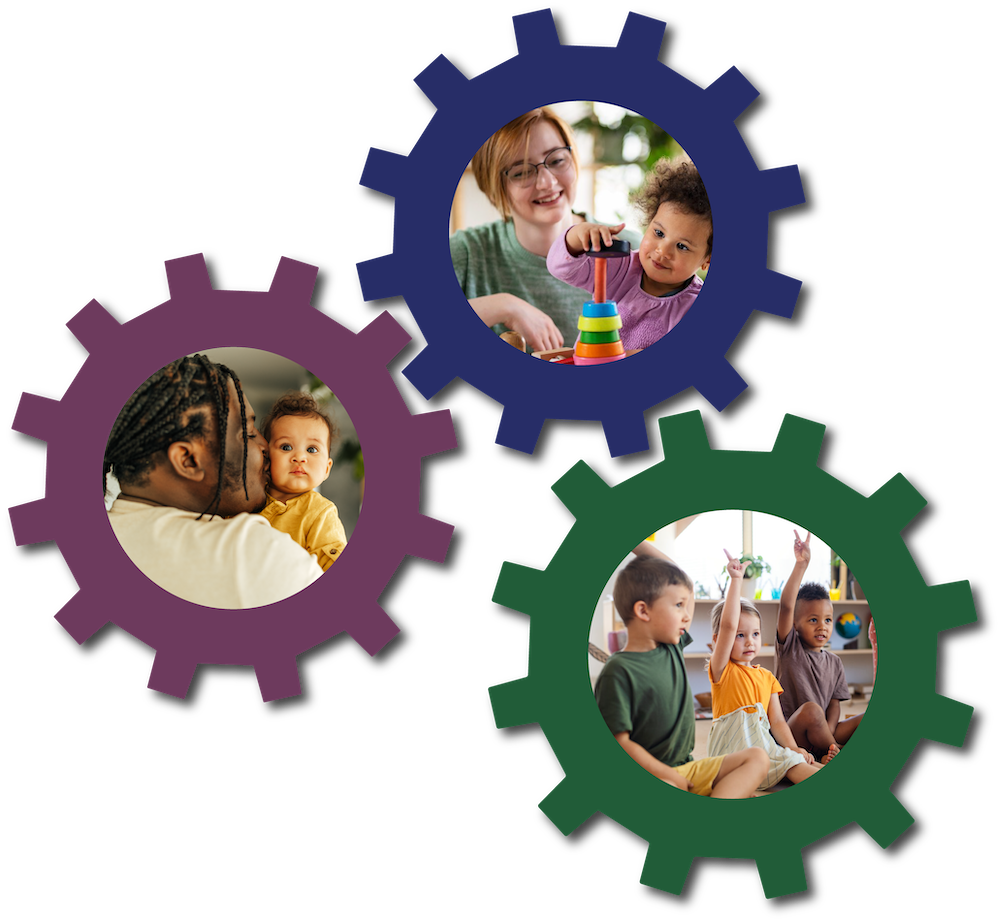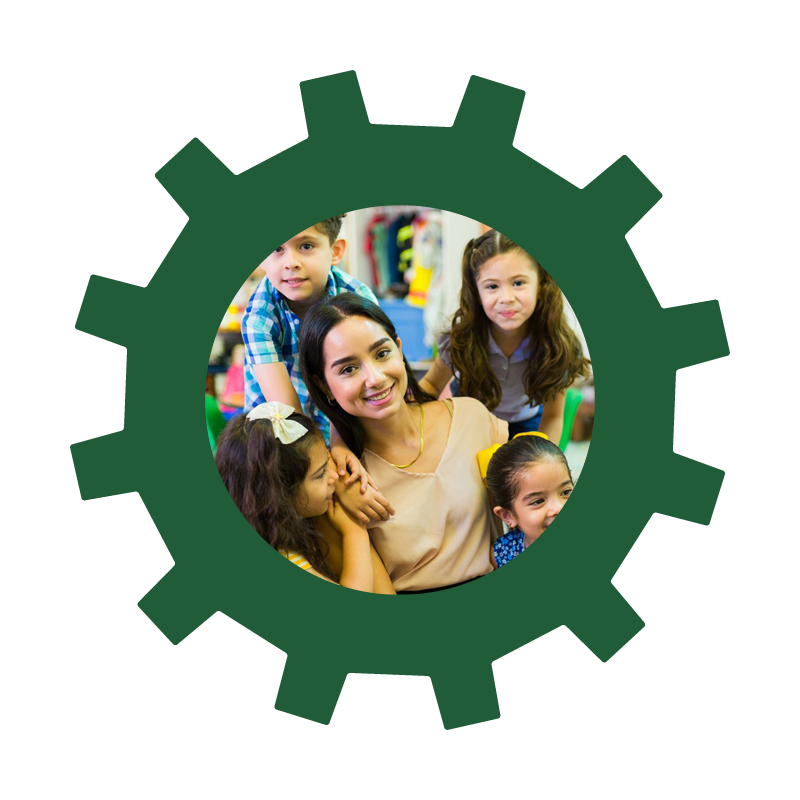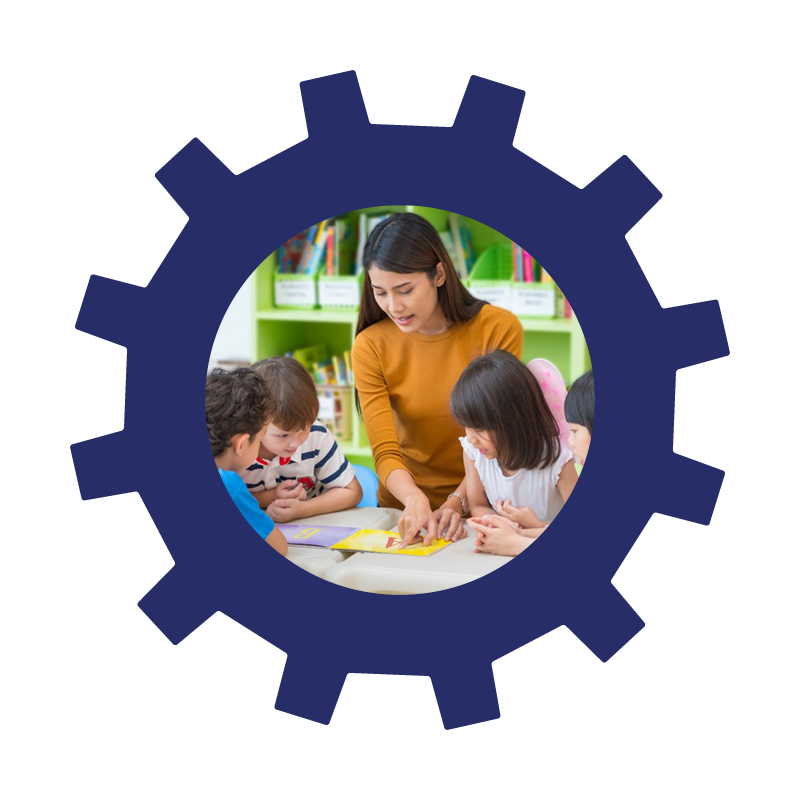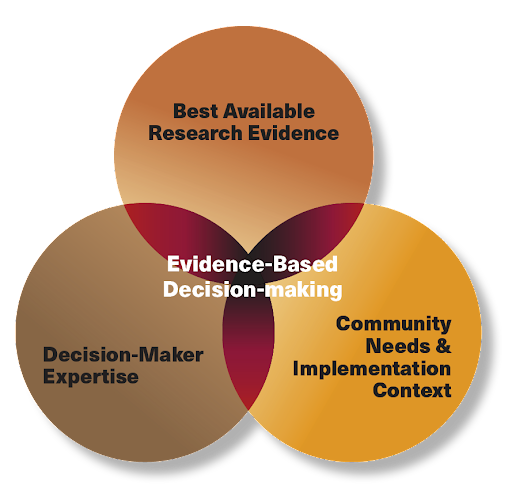Evidence-Driven Innovation
Evidence-Driven Innovation
Creating and sustaining an equitable, accessible, high-quality child care system in Colorado requires an understanding of individual policy and practice solutions, as well as those that work together, such as recruiting more qualified professionals to increase access to early childhood programs.
The Early Childhood Evaluation Hub (the Hub) aligns evaluations of differing stimulus-funded activities. With leadership from the Colorado Evaluation and Action Lab, the Hub:
- Streamlines and shortens the time required to provide insights
- Reduces evaluation and administrative burdens for the state
- Harnesses the knowledge and expertise of a network of seasoned evaluators
- Improves the ability to translate findings into policy and practice actions in a timely way
- Develops an evidence base to strengthen Colorado’s early childhood system


Improving Access & Quality
Access to Inclusive Care: Project Include
Center for Inclusive Design and Engineering, University of Colorado Denver
Availability and Outreach of Child Care (AOC) and Family Child Care Home (FCCH) Navigator Programs
Marzano Research
CCCAP Increased Absence Payments for Preschoolers, CCCAP Enrollment-Based Payments for Infants/Toddlers, and CCCAP Reimbursement Rate Increase for Providers
Brodsky Research and Consulting
CCCAP Reduced Co-Payments for Families and CCCAP Expanded Income Eligibility for Families
Brodsky Research and Consulting
Child Care Stabilization & New Provider Success Grants, Workforce Sustainability Grants, and Stabilization Grant Family Financial Relief
Butler Institute for Families, University of Denver
Community Innovation and Resilience for Care and Learning Equity (CIRCLE) Grants
Marzano Research
Emerging and Expanding Grants and Employer-Based Child Care
Schultz Patel Evaluation
Staffed Family Child Care Home (FCCH) Network and Substitute Fund
Marzano Research

Developing the Workforce
Apprenticeship Program
Butler Institute for Families, University of Denver
CCCAP Teacher Wage Increase Pilot
MDRC
CDA Support Specialist Program
Butler Institute for Families, University of Denver
Child Care Stabilization & New Provider Success Grants, Workforce Sustainability Grants, and Stabilization Grant Family Financial Relief
Butler Institute for Families, University of Denver
Recruitment & Retention Scholarship Program, and Free 1011 and 1031 Coursework
Butler Institute for Families, University of Denver
Staffed Family Child Care Home (FCCH) Network and Substitute Fund
Marzano Research

Strengthening Families
CCCAP Reduced Co-Payments for Families and CCCAP Expanded Income Eligibility for Families
Brodsky Research and Consulting
Child Care Stabilization & New Provider Success Grants, Workforce Sustainability Grants, and Stabilization Grant Family Financial Relief
Butler Institute for Families, University of Denver
Early Childhood Mental Health (ECMH) Consultation
Colorado Evaluation and Action Lab
Early Literacy and Child Care Outreach Supports: Imagination Library
Colorado Evaluation and Action Lab
Using Evidence in Decision Making
CDEC is a champion of using data for action and an early adopter of Colorado’s 5-year vision for Evidence-Based Decision-Making (EBDM) in policymaking. This aligns with our values of excellence and innovation. We prioritize building and using research evidence in context, pairing data with family voice and professional expertise. We then apply this comprehensive view of evidence throughout our planning and decision-making to bolster efforts across state systems that more fully support the health and well-being of children, families and early childhood professionals. Learn more about how CDEC applied EBDM to sustainability decisions for stimulus-funded activities.

Enhance Agency Decision-Making
Promote more equitable and transparent decision-making
Achieve a holistic view by pairing quantitative data with stories
Improve potential for success by using evidence within its full context
Strengthen Agency Alignment
Conduct strategic planning to achieve outcomes-based goals
Apply performance management data to strategic decisions
Use evidence in budgeting to advance priorities
Advance Priorities Across Systems
Address priority issues across the early childhood landscape
Innovate, sustain and scale practices/programs
Drive outcomes and smart investments